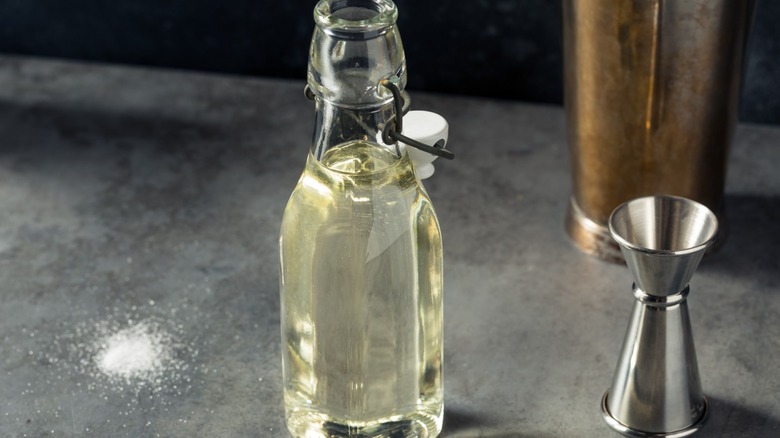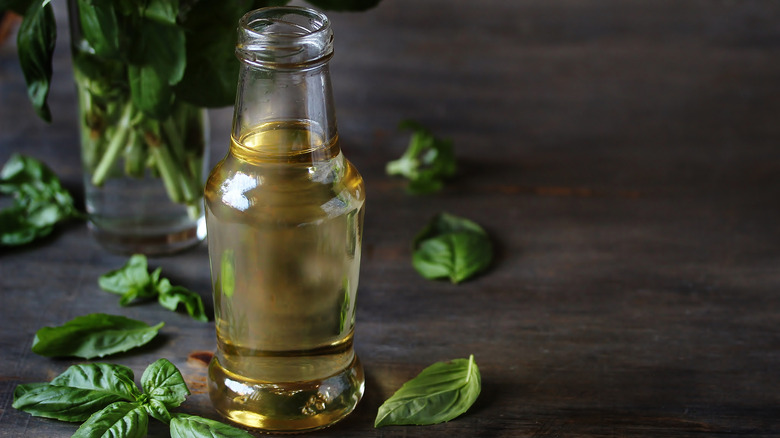The Best Simple Syrup, According To Science
Simple syrup is a bartender's best friend, a barista's bosom buddy, and a donut's favorite topping. It's the key to transforming lemons into lemonade. Not only are there tons of flavor options, but you can whip it up in a flash. And, it mixes well with other liquids, unlike some sweeteners like honey and agave.
Classic homemade simple syrup combines sugar with water for a basic sweetener that you can use to flavor your favorite beverages. The ratio of sugar to water matters. For a richer syrup, use a ratio of one part water and two parts sugar. This syrup is thicker and commonly used in cocktails. Otherwise, simple syrup with a one part water and one part sugar ratio will do the trick.
Simple syrup is aptly named for its short list of ingredients and rapid prep time. While most people reach for a pot to simmer their sugar-water mixture when making this sweet condiment, some experts say this step is unnecessary, per Serious Eats.
Skip the simmer for best results
If you routinely make your batch of simple syrup over the stove, you may be overcomplicating the process, according to Serious Eats: Cocktail Science experts. While heating the mixture may expedite the sugar's dissolution process, it's not a necessary step. The scientific reason for this is that sugar dissolves in water at room temperature.
Making simple syrup at room temperature has its perks. You'll have fewer dirty dishes, and spend less time combining the sugar and water. Plus, your finished product will be slightly thicker than a heated version. Experts also say that flavoring agents, like fresh herbs or juices, are better infused into the syrup at room temperature (per Serious Eats).
Leaving the solution at room temperature will take 15 to 20 minutes for sugar in a 1:1 sugar-water ratio to dissolve. A syrup with a 2:1 ratio will likely take 45 minutes or longer, along with an occasional stir. However, heating your solution increases the shelf life of the syrup and kills any naturally occurring bacteria.
Food Republic notes that the way you measure your sugar can also make a difference. Using a scale as opposed to a measuring cup is preferred for a more accurate ratio. That's because a cup of granulated white sugar will contain more particles of sugar crystals than a cup of a fluffy, airy sugar, like brown sugar, which affects the ratio and weight.

